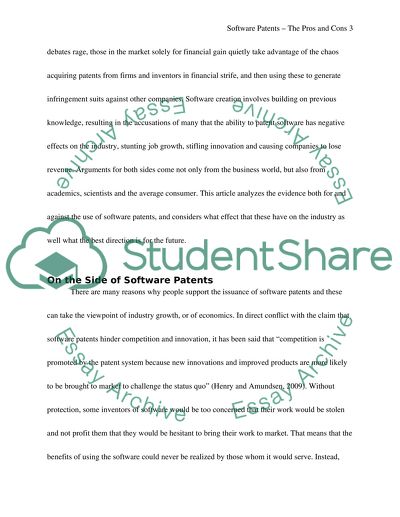Cite this document
(“The Software Debates: Pros and Cons of Software Patents Essay”, n.d.)
Retrieved de https://studentshare.org/law/1391244-software-patents
Retrieved de https://studentshare.org/law/1391244-software-patents
(The Software Debates: Pros and Cons of Software Patents Essay)
https://studentshare.org/law/1391244-software-patents.
https://studentshare.org/law/1391244-software-patents.
“The Software Debates: Pros and Cons of Software Patents Essay”, n.d. https://studentshare.org/law/1391244-software-patents.


